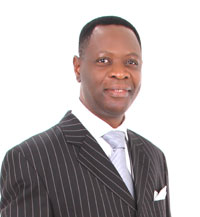Mr. Cephas Lumina, former Independent Expert (2008-2014)
Independent Expert on economic reform policies and foreign debt

Dr Cephas Lumina is a former Independent Expert on foreign debt.
He holds an LLB with Merit (Zambia), LLM in International Human Rights Law (Essex, United Kingdom), PhD in International Human Rights Law (Griffith University, Australia), and an Advanced Diploma in International Human Rights (Abo Akademi University, Finland). He has over 25 years’ legal practice, research and teaching experience in several countries including Australia, South Africa, Swaziland, Sweden, Uganda and Zambia.He has served as a Visiting Professor at the Raoul Wallenberg Institute of Human Rights and Humanitarian Law at Lund University in Sweden, a Visiting Lecturer at Makerere University in Uganda and as a consultant to various organizations (including the United Nations, International Development Law Organization, Canadian International Development Agency, Swedish International Development Agency, Open Society Initiative for Southern Africa, Human Rights Trust of Southern Africa, Women for Change and the Court of Appeal of Tanzania).
Dr Lumina has given numerous lectures, presented papers on human rights at various international conferences and published in the areas of human rights, humanitarian law, commercial law and legal education. He is a member of the editorial boards of the International Human Rights Law Review and African Yearbook of International Humanitarian Law and he has served as a referee for several international journals and publications, including the Global Corruption Report. Dr Lumina is an Advocate of the High Court for Zambia and an Extra-Ordinary Professor of Human Rights Law at the University of Pretoria.
He was appointed the United Nations Independent Expert on the effects of foreign debt and other related international financial obligations of States on the full enjoyment of all human rights, particularly economic, social and cultural rights in March 2008 and served until end of May 2014 in this function.